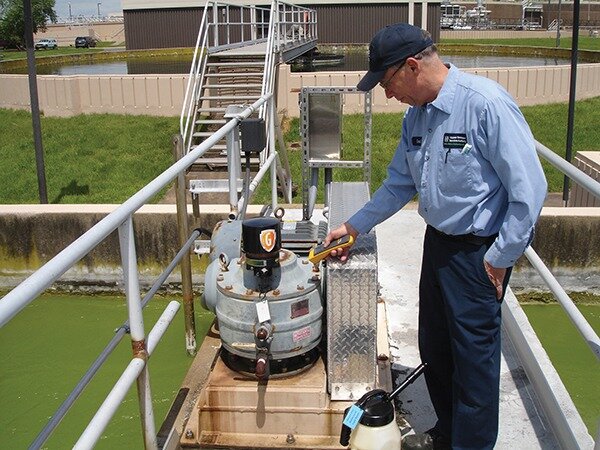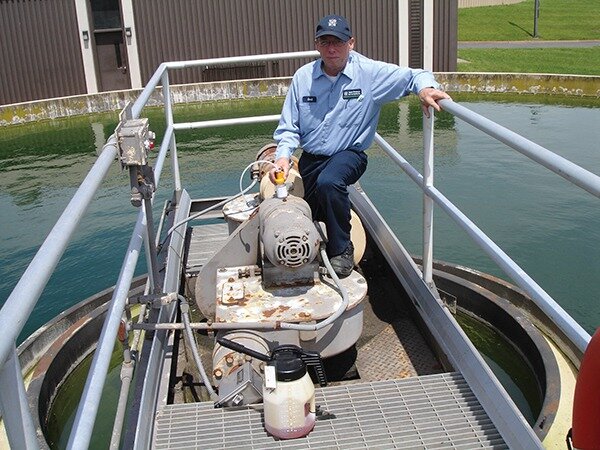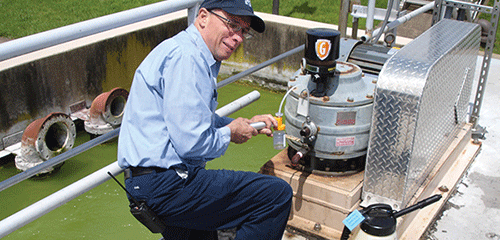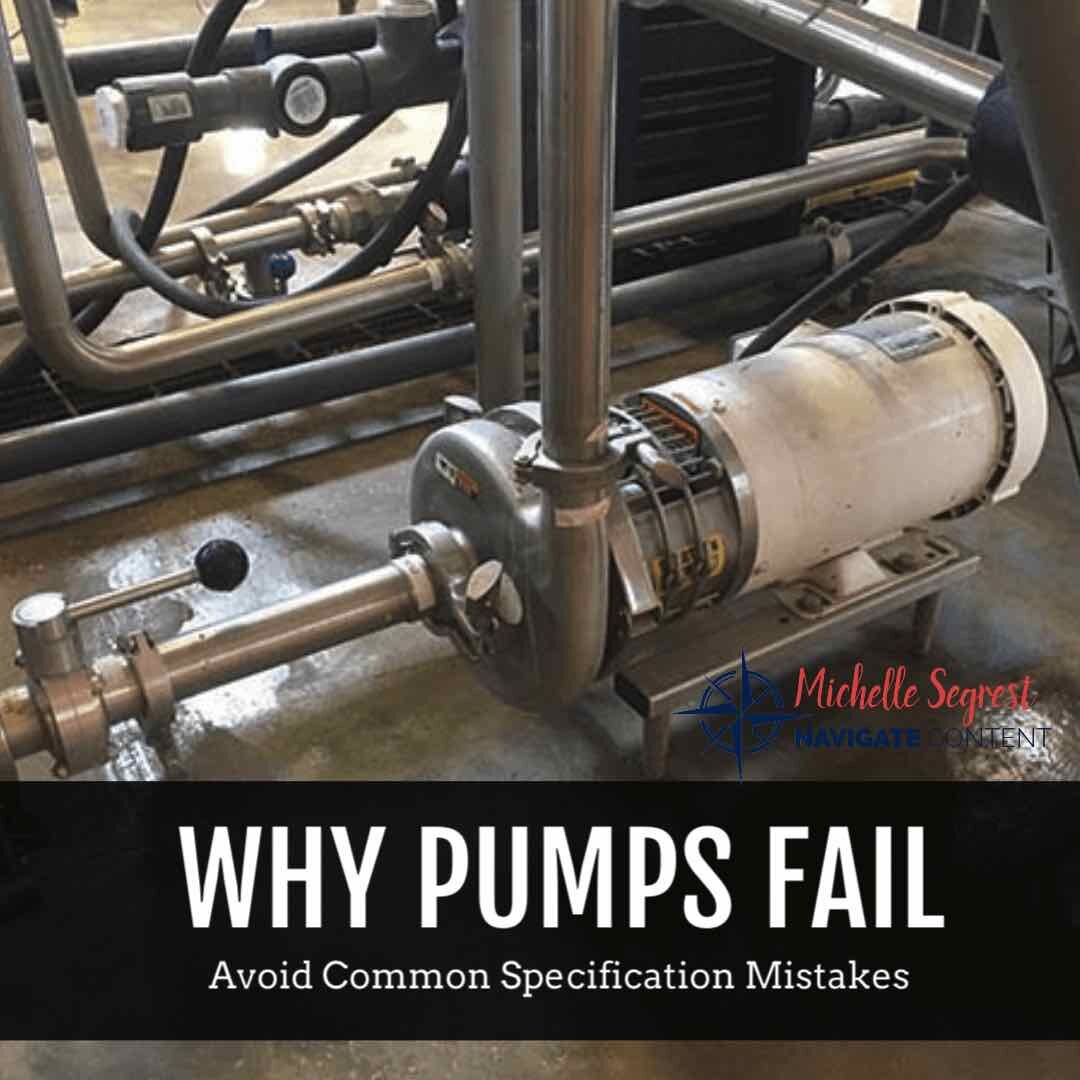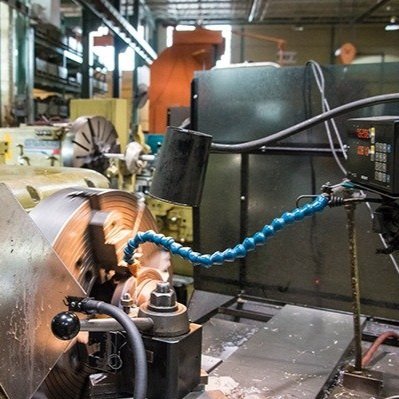A Renaissance Maintenance Man Makes a Difference for a Water Reclamation Plant
/Maintenance professional Saul Cizek uses a lifetime of experience and myriad interests to make a difference at a Virginia water reclamation plant.
By Michelle Segrest, Navigate Content, Inc. — Reporting for Maintenance Technology Magazine
For Saul Cizek, being a maintenance professional isn’t just a job — it’s a way of life. Every day makes a difference.
“Maintenance keeps airplanes aloft, ships afloat, and bridges stable,” said Cizek, the lead maintenance planner at the Upper Occoquan Service Authority in Centreville, VA. “My current position has afforded me an opportunity to effect changes that will manifest in the conservation of precious resources, greater safety, and maintenance education.”
A true Renaissance man, Cizek does not limit himself to maintenance on the job. The 65-yr.-old has maintained equipment in missile systems, motorcycles, motors, wood mills, winery equipment, shoe-industry equipment, alternative-energy engineering, radio-frequency generators, induction furnaces, laser acousto-optics systems, high-vacuum equipment, electron-beam guns, welding, and motion-picture props/special effects. He even re-hairs violin bows for his daughter’s middle school.
“My early childhood proclivities and propensities revealed an interest in machines and maintenance,” he said. “Add in a substantial amount of parental encouragement, and I found myself smitten with maintenance. I also get to speak to and write for my favorite audience: the hidden heroes of maintenance.”
Begin Maintenance Education Early
Because his father is a cabinetmaker and WWII airplane technician, Cizek began his maintenance education early.
“My father (now 95 years old) would take out some of the old technology books from the airplanes he worked on and explain things to me,” Cizek said. “He and my mother encouraged me and taught me to pass along the gift of encouraging others. This doesn’t mean over-complimenting all the time. You don’t compliment someone for sliding down a slide at the playground.”
Cizek’s father ran a cabinetmaking shop on the banks of the Potomac River in Alexandria, VA. Cizek began working there when he was 10. Across the street was a garage used to repair concrete mix trucks. Cizek said he remembers seeing sparks and flash from arc welding. “I would see the results of how they could glue two pieces of metal together and make something solid. This really got my attention, and I was fascinated with welding.”
He began to work on anything that could possibly be repaired. His mother’s advice was always in the back of his mind. “She was a homemaker and an artist,” he said. “She had a way of challenging my brother and me to compete for the honor of cleaning the bathroom. I always wondered how she did that. First, she explained the value of our work, and then she thanked us. We didn’t have a lot of money, we were taught to think outside the box. My mother had a philosophy on life that I have always carried with me: ‘Bloom where you are planted.’ So, pursuing a career in maintenance was a perfect fit for me.”
Put Maintenance and Reliability Experience into Practice
For 11 years, Cizek has been a maintenance planner for the water-reclamation facility. “I consider myself a facilitator for improving maintenance, and I use the methods of maintenance planning to achieve that goal,” he said. “We have opportunities here to improve lubrication and motor management.”
He said he believes communication is the first and most important key to maintenance success. “I once saw a sign that read, ‘The biggest problem with communication is thinking it was successful,’” he said. “People think just because someone said something, everyone understood, but this is a common misconception. I like to go out into the plant, ask questions, and try to find non-destructive ways to trend operational conditions. I get to create task instructions and go into the field. I am not afraid to get dirty.”
Cizek’s maintenance philosophy is first to focus on safety, which drives everything. “If you are doing it safely, there is a very strong likelihood you are also doing it well from the reliability standpoint. You also must have repeatability, because your reliability is based on repeatability. It works best to bring all the people you can to the same concept of doing maintenance well. If you can develop that sense of pride in what you are doing, your team will become invested.”
The most important qualities Cizek looks for in new team members are sincerity, competence, and dependability. “If a person has these three things, it is amazing what can be accomplished. Best practices will automatically begin to spread.”
These qualities may seem intangible, but Cizek said they can become part of the core level of expertise. “They are only intangible until you recognize that you have them,” he said. “Once they are realized, you start seeing the key performance indicators improve. Tasks get checked off the list more promptly and with better maintenance outcomes. People can say these things are intangible, but once they manifest, they are solid and real.”
Improving Maintenance Best Practices for a Water Reclamation Facility
Cizek works with several teams to improve maintenance of the 400-acre water-reclamation facility. Teams are divided into electrical, mechanical, instrumentation, buildings and grounds, collection systems, and the maintenance-support office where Cizek works. All are constantly troubleshooting, using preventive and predictive techniques, and taking great pride in the overall maintenance.
“I have had contractors come in to do work on our underground storage tanks and they’ve said, ‘What do you do here? Is this a college campus?’ They can’t believe it when I tell them they are in a wastewater- treatment facility. It is clean, you don’t smell anything, and all is maintained so well.”
The Upper Occoquan Service Authority is designed to treat 54-million gal. of wastewater each day. In his 11 years of service there, Cizek has found simple ways to make a big difference.
“One of the things that needed attention when I first got here was lubrication,” he said. “I knew a little bit about oil because I had been a motorcycle mechanic and worked on hydraulics in the Navy. I took a course in basic lubrication, and it was a real eye opener.”
He studied books by industry experts such as Heinz Bloch. “Mr. Bloch talked about the use of grease in bearings,” Cizek said. “I learned there are incompatible greases and the wrong combinations can destroy bearings. When I got here in 2005, one of the first things we did was engage a better oil-test lab. We now have an oil-analysis program that is very responsive and accurate. This is the foundation of our lubrication program.”
Using Oil Analysis to Improve Operations at a Water Reclamation Facility
Oil analysis was used only on about 25 to 30 pieces of equipment before Cizek’s tenure at the facility. Now, it is a robust program covering almost 400 pieces of equipment.
The technical details are certainly a priority, Cizek said. It is his connection to the people that makes the most significant impact.
“I have been able to connect with our staff who perform maintenance and help find more effective ways to perform that maintenance,” he said. “I have built a sense of trust with my co-workers. I make sure people know the value of what they do. I want to help people get an understanding that what you are doing matters. Many people look at maintenance as housework, and you really start noticing housework when it’s not getting done.”
Cizek cited a specific example of critical blowers with a 7.5-hp, 3,600-rpm motor, and 20-in. cantilevered shaft employing seven spinning turbine wheels. Previously, when these blowers would get clogged and out of balance, the technicians would rebuild them based on “handed down” practices. The blowers constantly exhibited a high level of vibration when in operation.
Cizek consulted the maintenance manual and asked the technicians to check the shaft run-out tolerances with a dial indicator. It was discovered that the shaft run out was out of tolerance. This was corrected. He constructed a balancing jig and wrote a job plan for rebuilds. The technicians began to learn more about the blowers, and their rebuilds ran longer and performed better.
Applying a Precision Approach to Maintenance Best Practices
Over time, the technicians got the machines running so smoothly that they could no longer hear them operating in their noisy industrial environment. They had to touch the blowers to feel the slight running vibration. The vibration had dropped to the recorded start-up levels.
“Applying the precision approach to maintenance is gaining traction in every facet of our maintenance work,” he said.
Another example was on vertical pump motors with oil-level windows so dirty the oil level could not be read. Cizek ordered replacement windows and created tooling for removal and replacement of the windows.
He went to a local motor shop and captured photos of a motor repairman using this tooling to install new oil-level windows and shared the photos to train the facility’s maintenance staff.
“Things like this get people out of their old mindset and help to train them in a different way,” he said. “There is nothing more frightening than the thought of a new idea. I try not to introduce too much too fast. Every machine is different. Every plant is different. Every person is different. You have to continuously adapt. People can get very invested in their first thought and the way they have done things for years. Taking new approaches is a tough sell, but in the end, it makes a difference for the triple bottom line—what’s good for people, what’s good for the environment, and what conserves money.”
Michelle Segrest is President of Navigate Content, Inc., a full-service content creation firm. She has been a journalist for more than three decades and specializes in covering the people and processes that make a difference in the industrial processing industries. Contact her at michelle@navigatecontent.com




